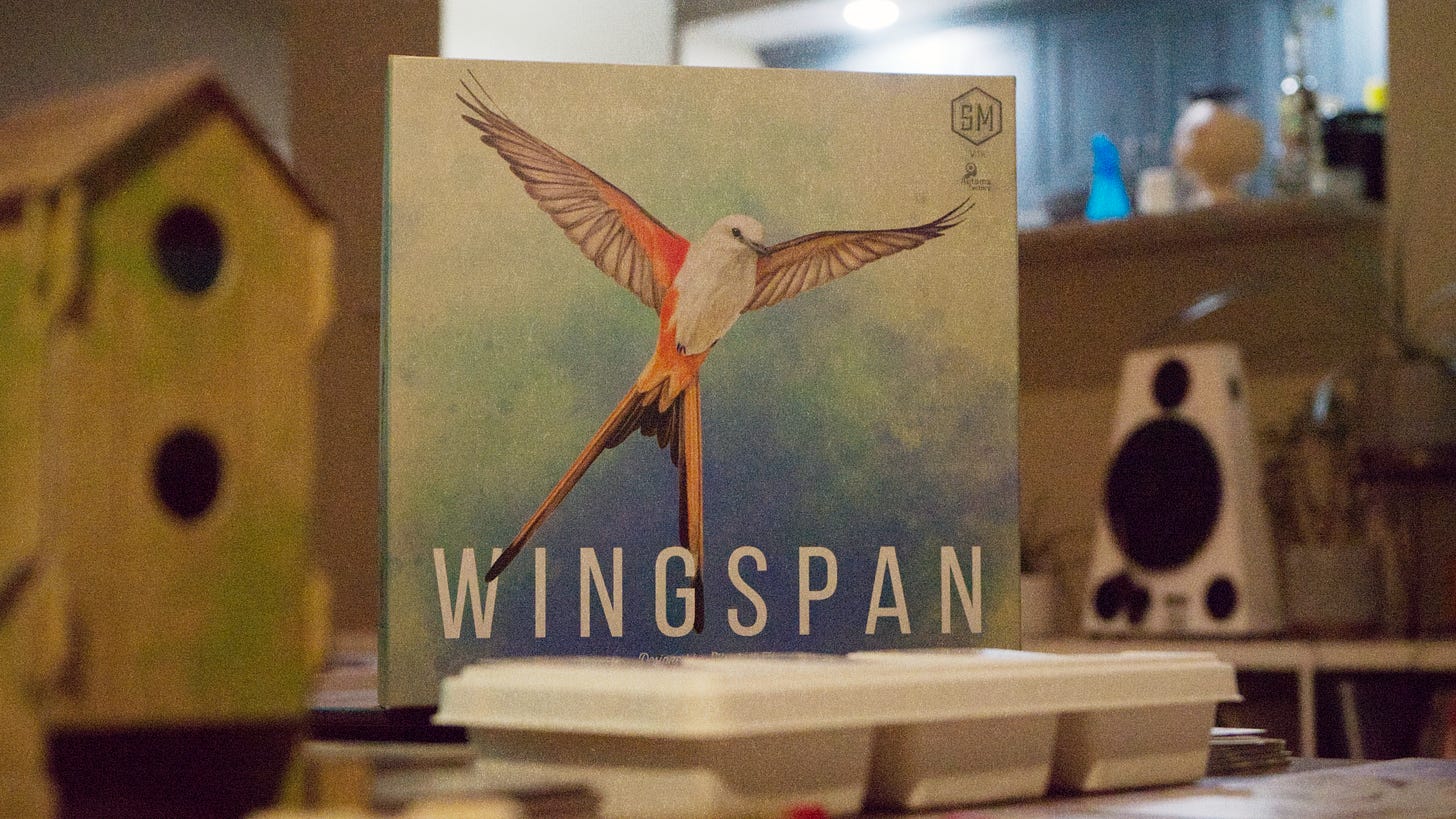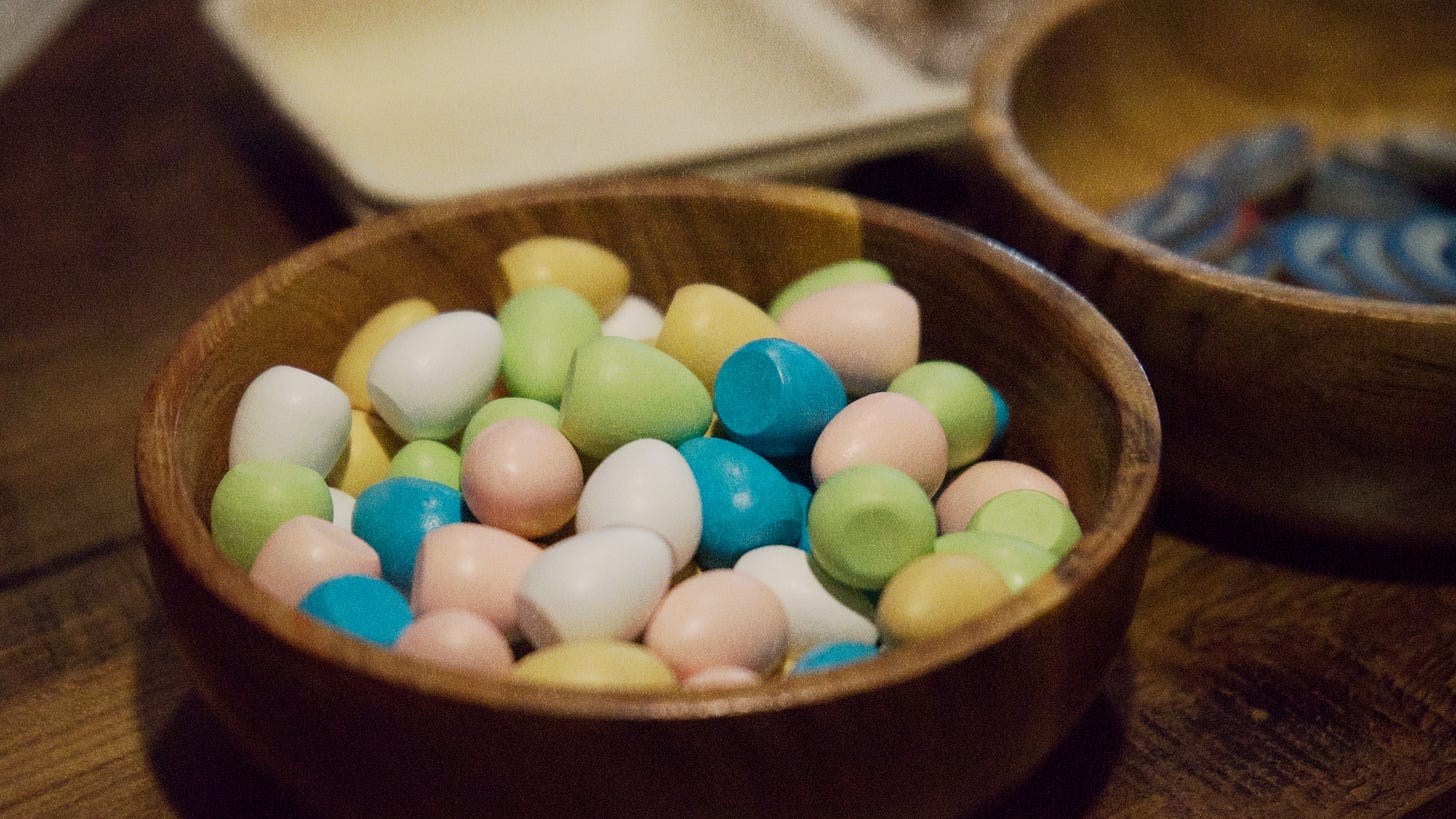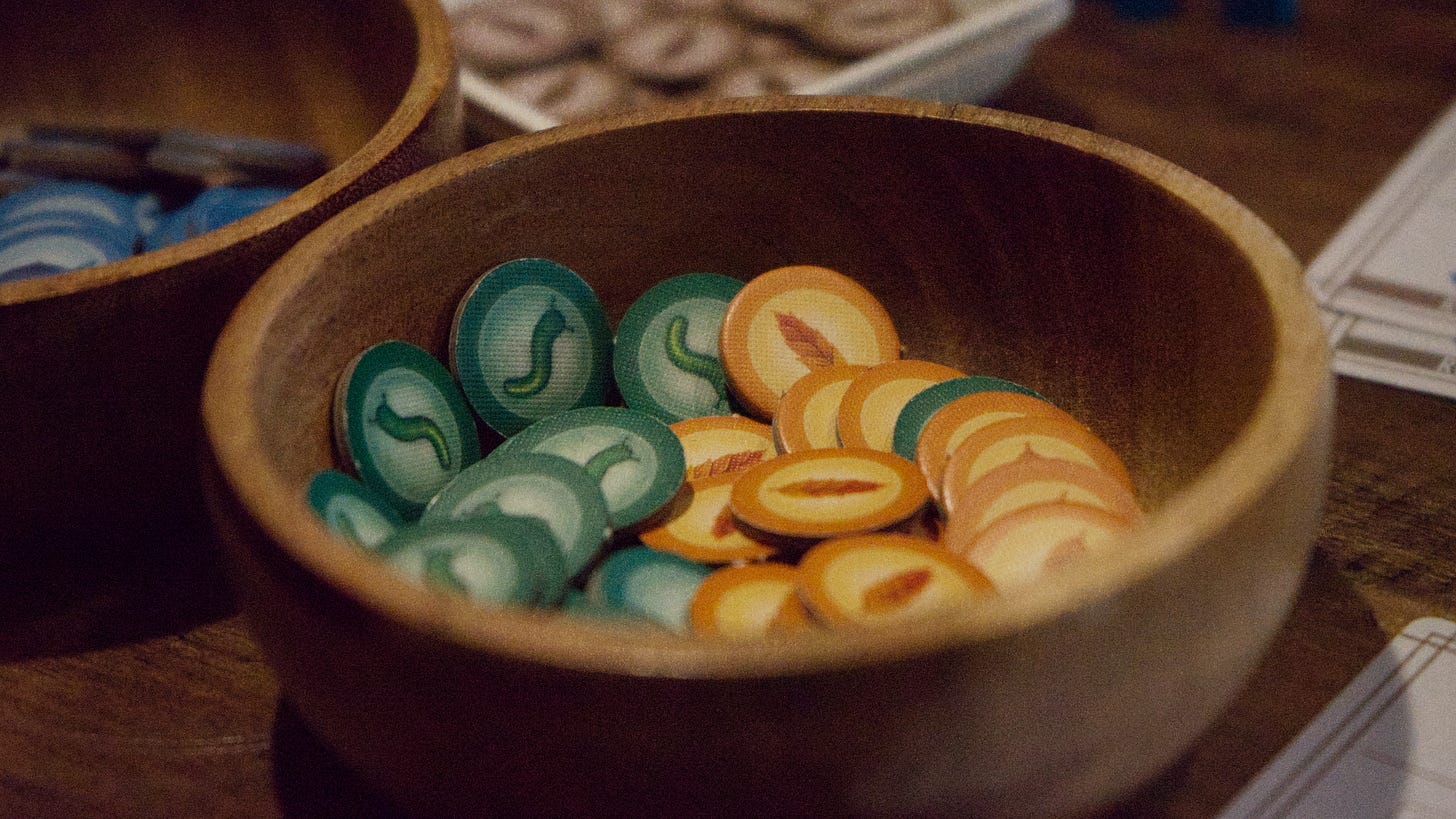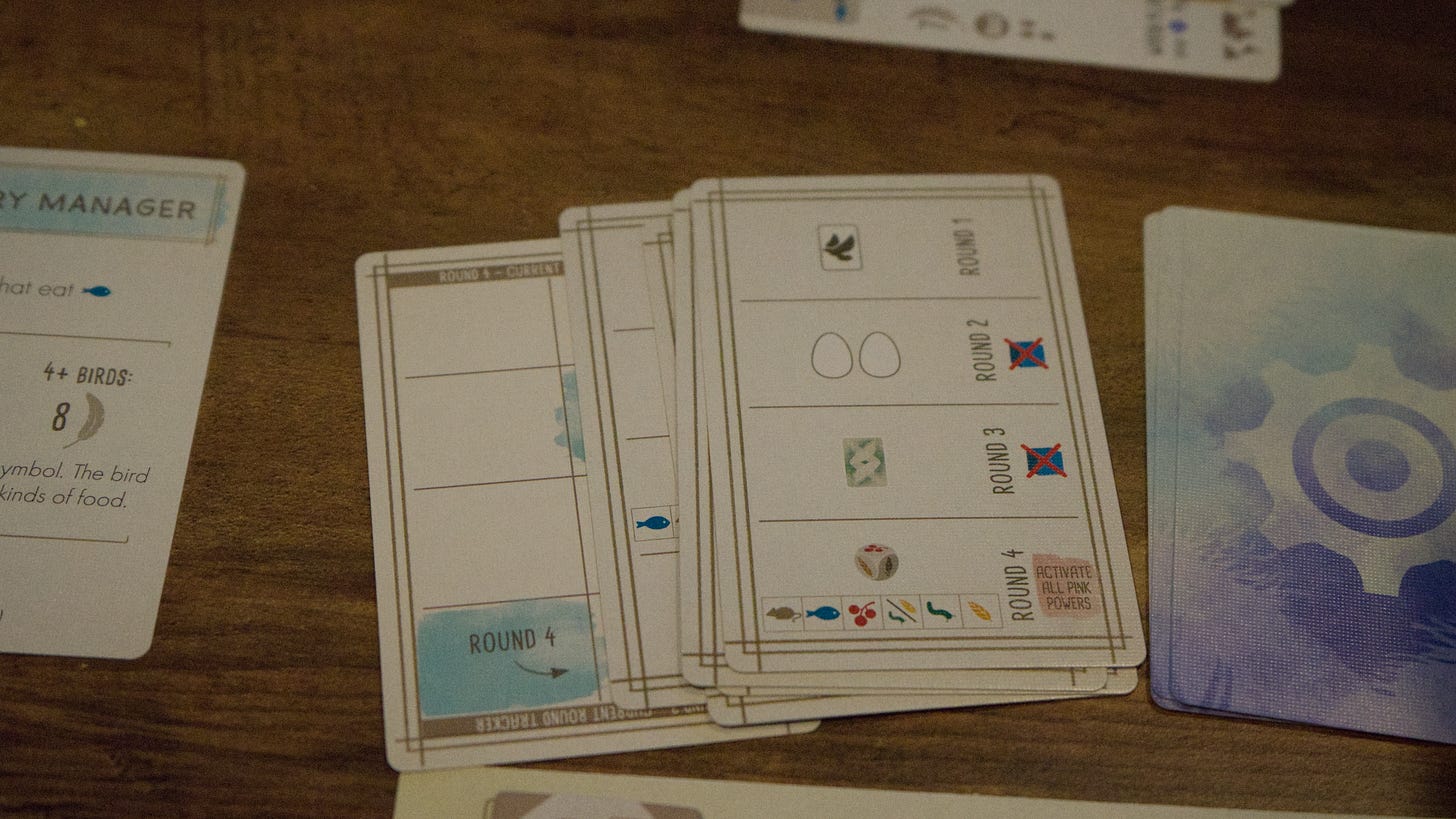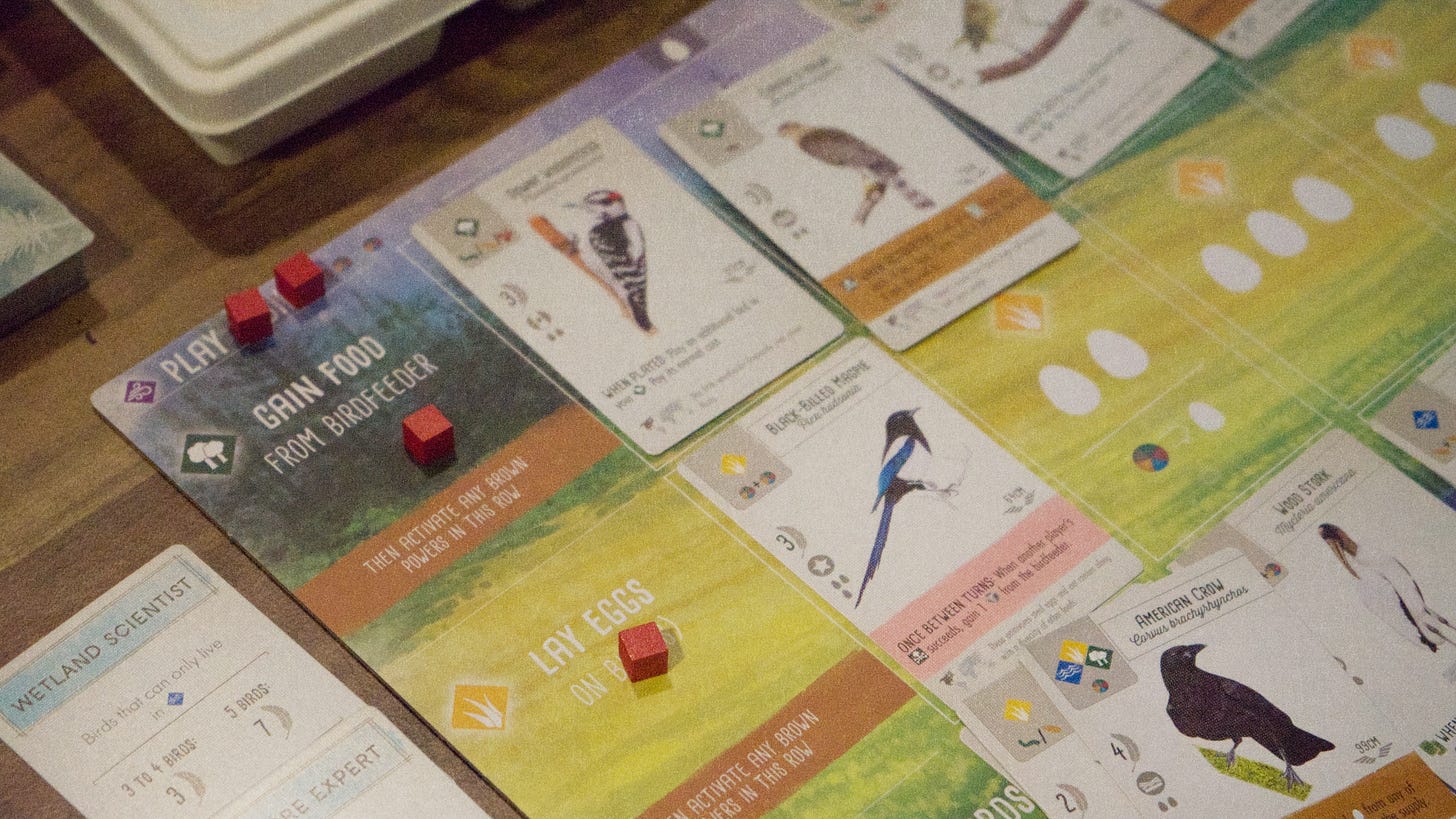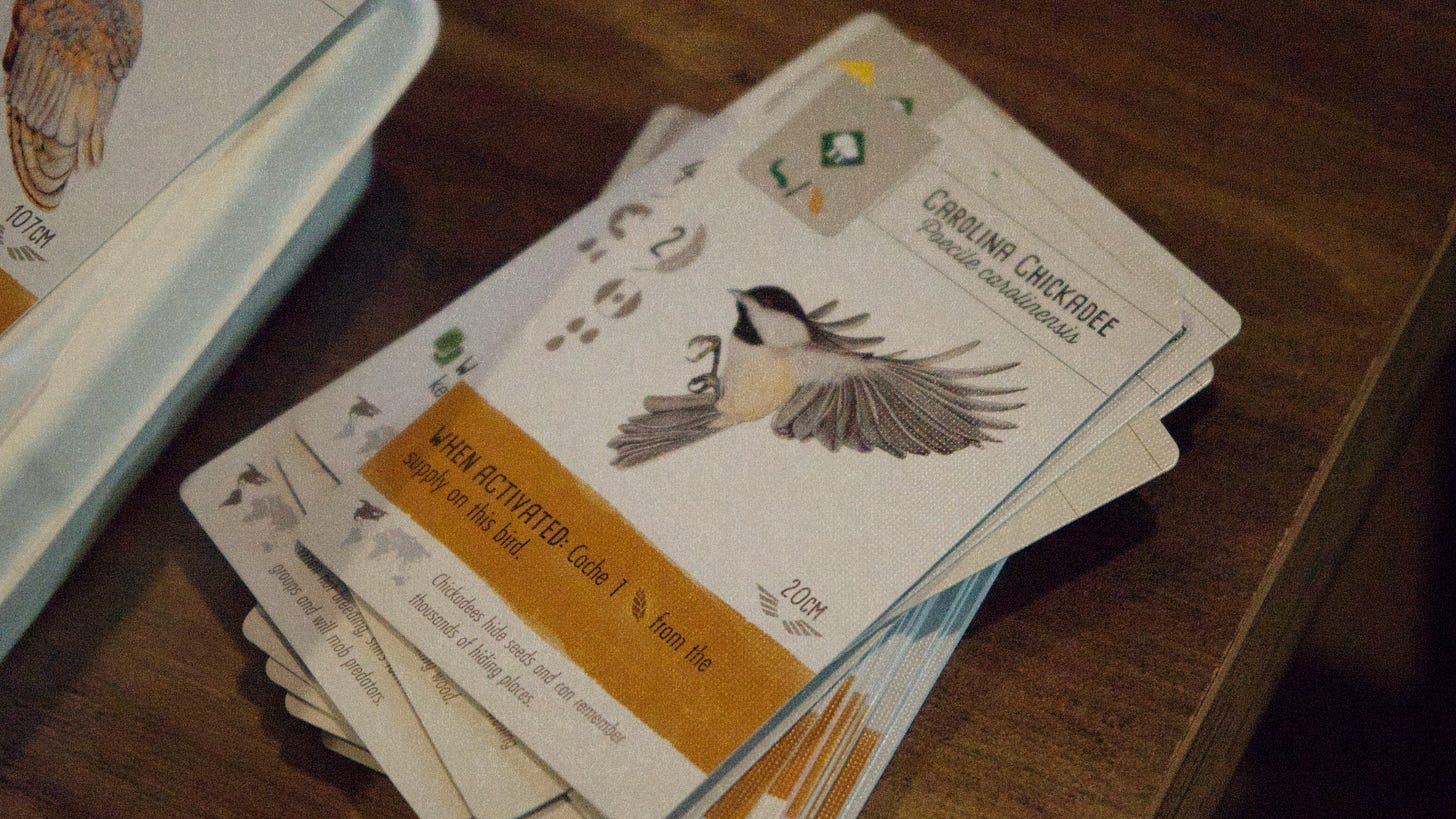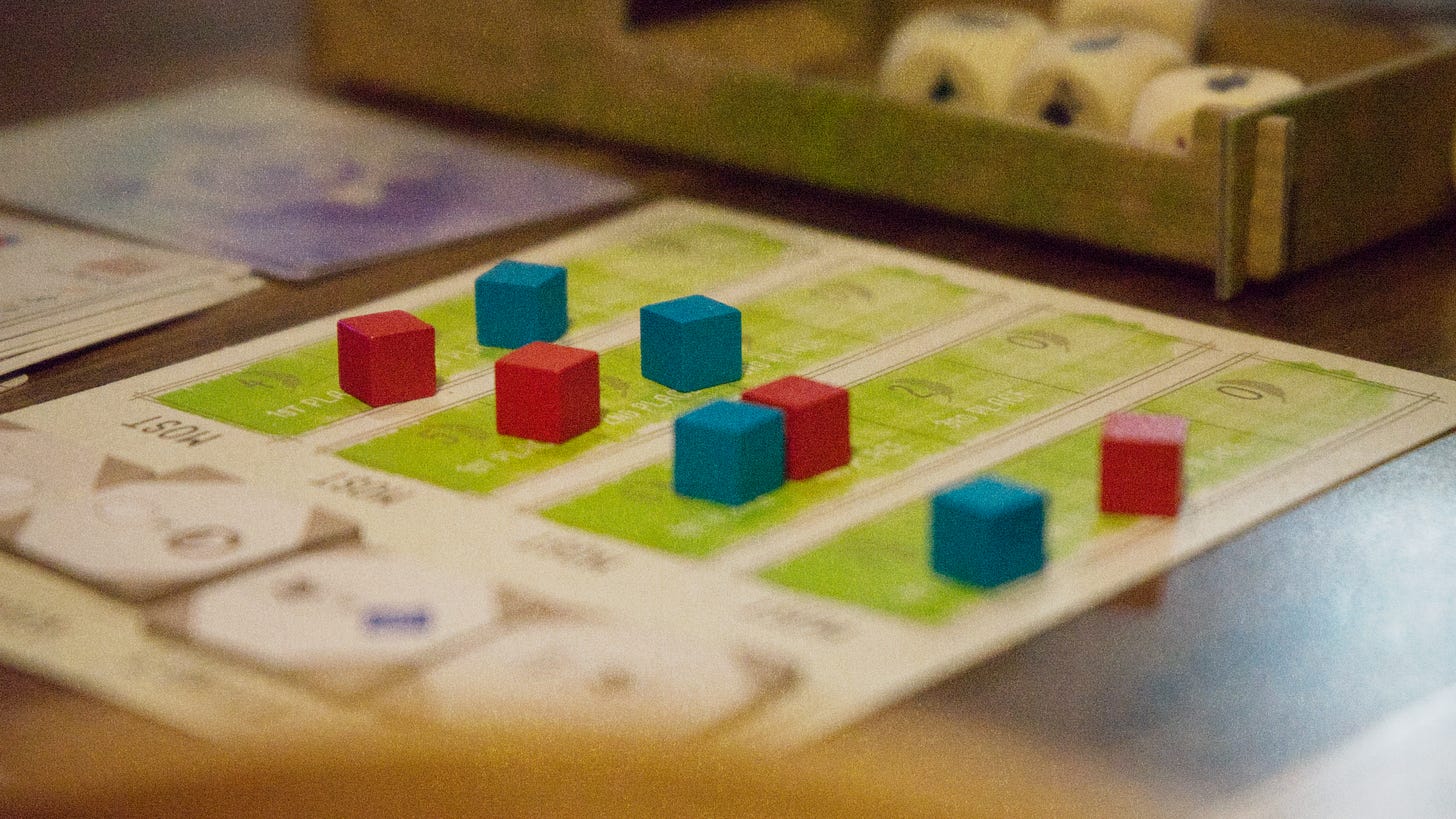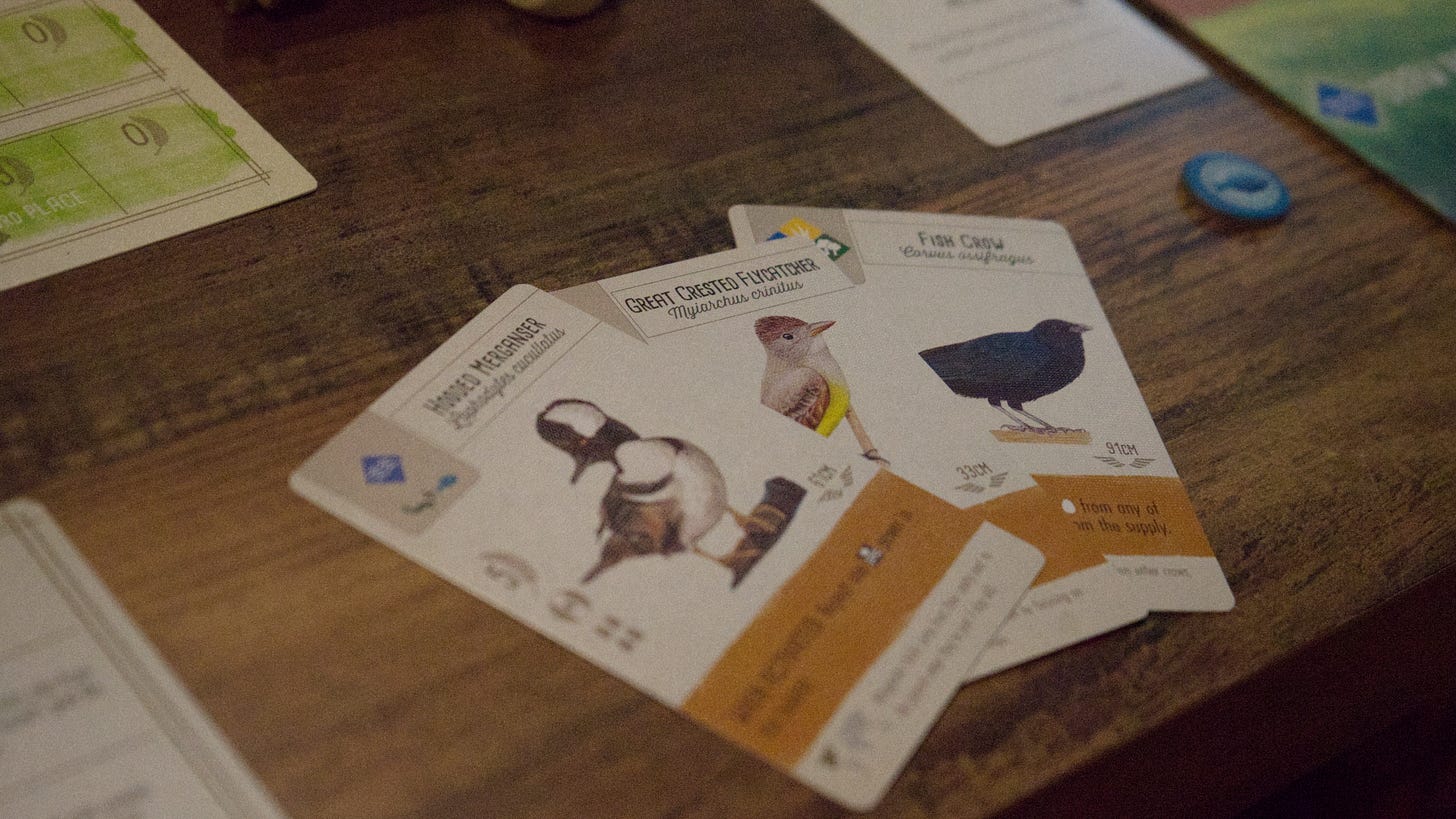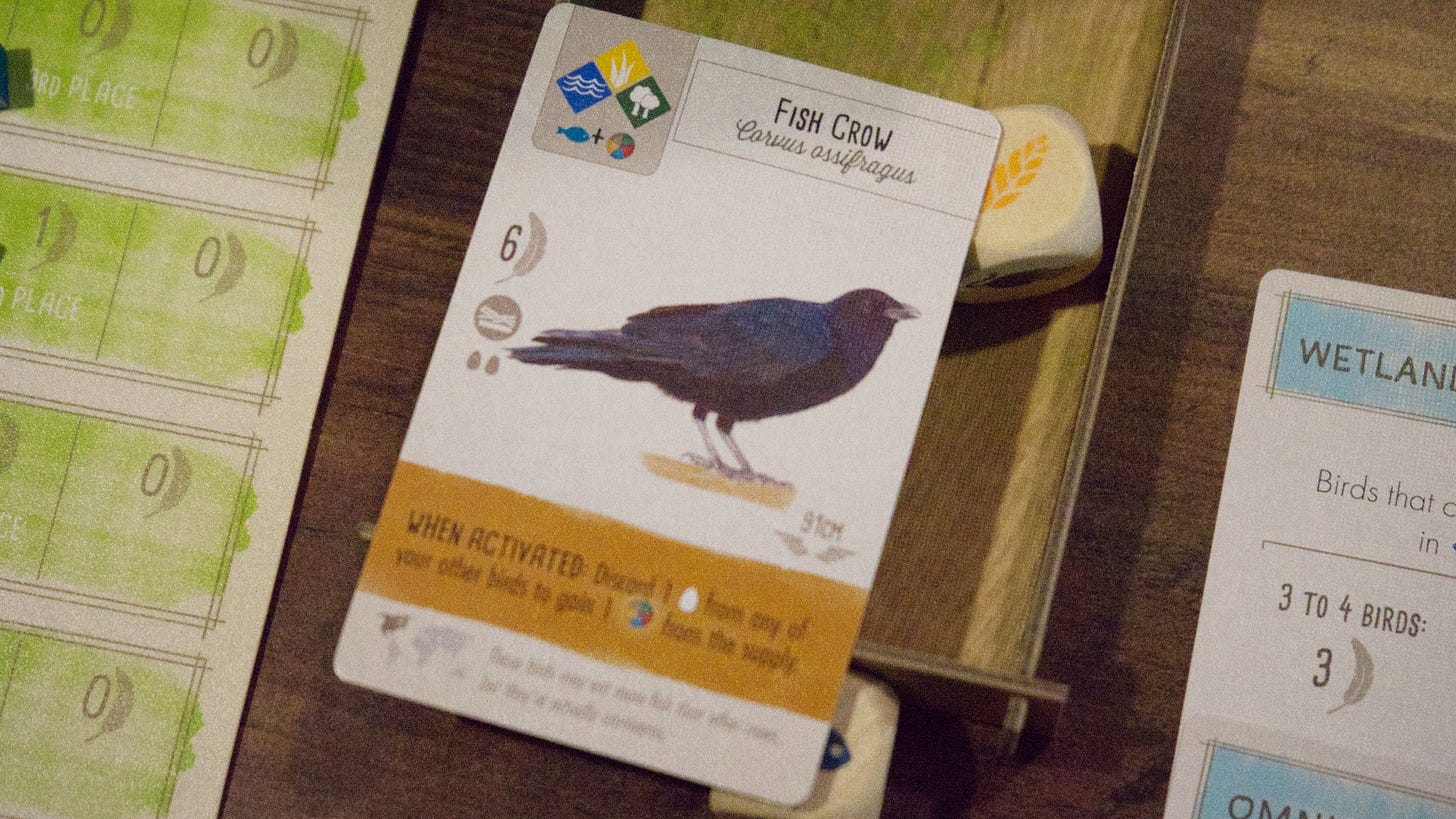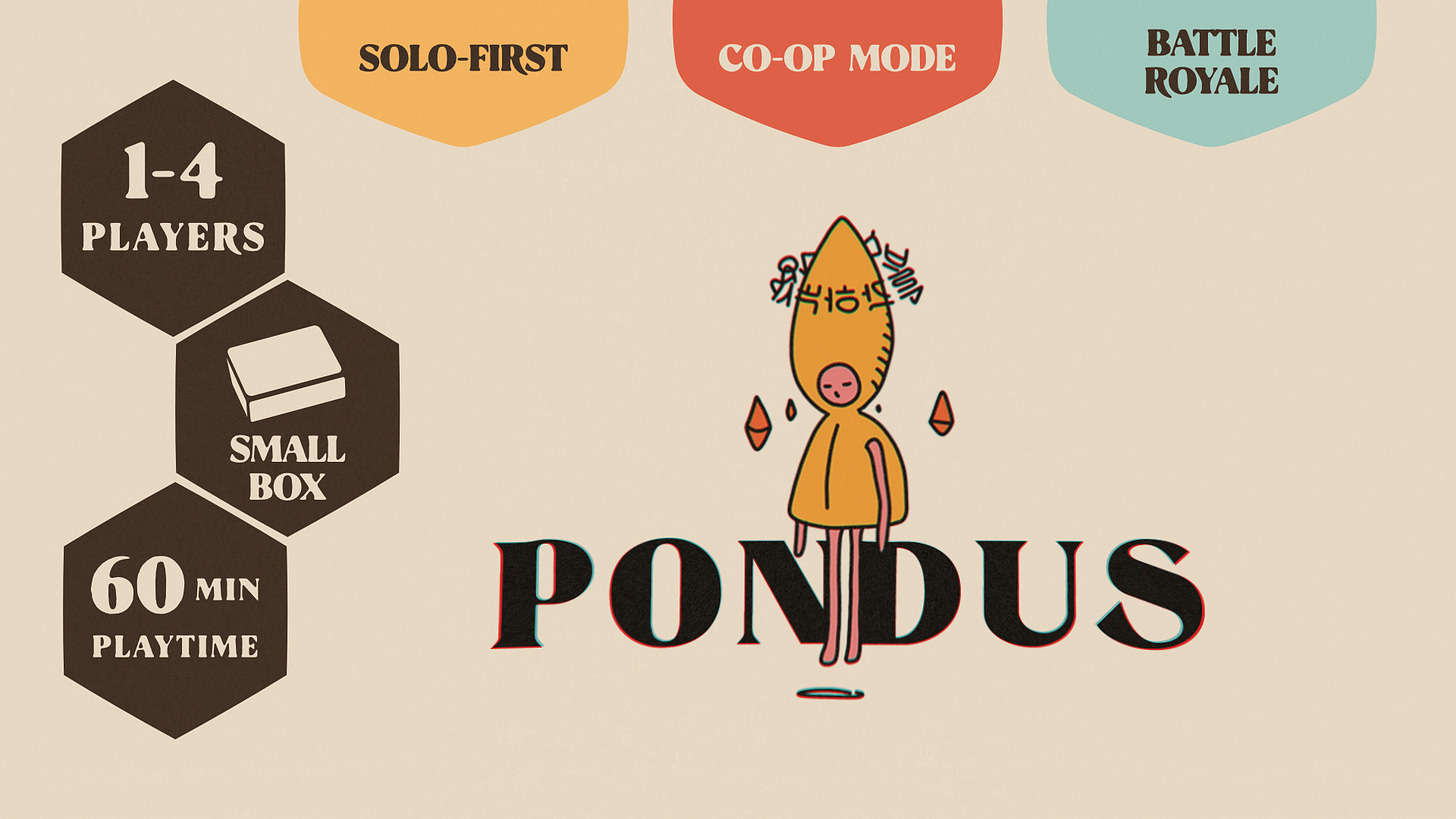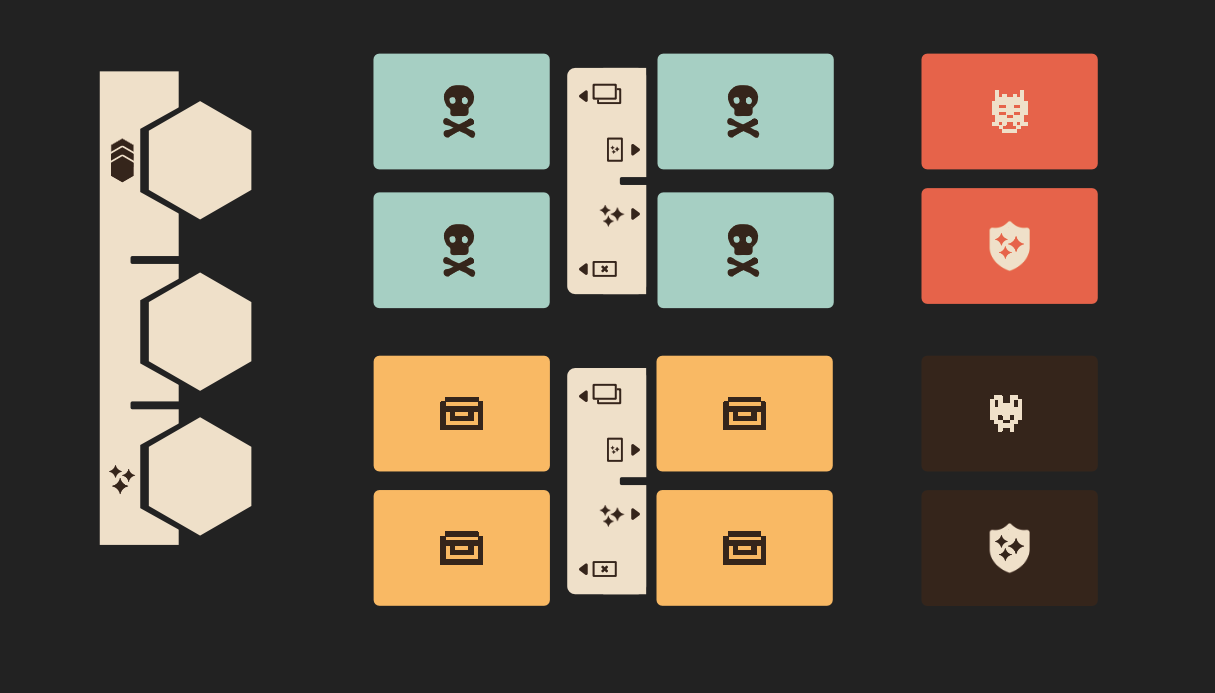This October I’d like to celebrate a few of my favorite games I’ve played solo recently. (I’d also like to talk about my upcoming game PONDUS, which launches on Kickstarter October 17th. but more on that later)
Today’s solo adventure?
Wingspan by Elizabeth Hargrave (Solo by David J. Studley) and Published by Stonemaier Games.
This was voted on by readers of the last newsletter (see the poll at the bottom!)
In Wingspan players are tasked with creating a nature preserve that attracts birds that award you the most points over 4 rounds. In the solo mode you are competing with The Automa, a pretty simple AI that takes turns almost like another player!
SETUP:
The solo version of this game takes up about 2/3rd of my coffee table. And that’s mostly because I’m spreading things out. You only need 1 player board, all the usual Wingspan components (dice, food tokens, non-edible eggs, the goal card, and the huge stack of bird cards), and the Automa cards.
The AI has a simple setup. There’s some icon reference cards and a round tracking card. There’s a small deck of ‘action’ cards that you’ll flip over to determine what the AI does each turn.
GAMEPLAY:
Wingspan is played over 4 rounds, beginning with 8 turns in the first round and losing 1 turn every round after. (For a total of 26 turns)
Each turn you can do 1 of 4 actions.
You can play a bird.
You can gain food. (This helps you play birds)
You can lay eggs. (This helps you score points)
You can draw bird cards.
You’ll track your actions using small color cubes. The more birds you play on your mat, the better the benefits you’ll get when you take actions. (for example, after you play 2 birds in the forest row, you gain 2 foods instead of 1 from here on)
There are a number of icons on the cards and in the game in general. You may have to reference the rulebook a few times your first playthrough, as the goal tiles are displayed in icons with little to no language.
At the end of each round, the player checks to see if they beat the Automa in that round’s goal. You’ll place cubes on the appropriate places and move on to the next round. You can lose the first round or 2 of goals. But the 3rd and 4th rounds reward the winners game winning points you don’t want to miss out on! (I missed out on those in my playthrough and lost by over 10 points!)
There are well over 150 unique birds in the base game of wingspan. Most of them have some kind of special effect that occurs when they’re played or when you take a certain action. When you take the ‘draw bird cards’ action you’ll take them from a set of 3 cards that are displayed in a small draft setup. You’ll maintain a small hand of bird cards as you play the game.
THE RESULTS OF MY PLAYTHROUGH:
I lost!
The Automa gains points 4 different ways.
It gets 3-5 points for every facedown bird card it collected during the game. (This is the bulk of its points for me)
It gets points from face up bird cards it collected. (It only got 2)
It gets 1 point for every egg it collected. (This egg robber managed to get 16 eggs! I only had 3!!)
It gets points from the goal card. (The more times it beats you at goals, the more points it’ll get!)
And in the game I played here, it scored 89 points! (44 of those points were just from face down bird cards!)
You score a points in a similar way.
You get points from the birds in your reserve
You get 1 point for each egg, cached food, and tucked card in your reserve (these are things your birds do as you play)
You get points from your bonus cards (my bonus card was ‘gain 2 points for every bird I played that had a ‘wild food’ icon’. Only managed to play 4 of them! 😭)
You get points from the goal card (I lost the last 2 rounds! 😭)
I scored 73 points. (I did put up a fight I think)
Lessons learned from Distilled:
As a game designer, I’m constantly learning from my coworkers in the scene, and so I try and play as many games as I can afford to! I have a particular interest in making games that provide a great solo experience and I try to take away a lesson or two from each game I play, even if the solo mode wasn’t the original intention of the game.
I love the theme. It’s a bright game that has you playing a pretty non-violent tableau builder. The engine in this game really builds up. I love that the more birds you manage to put in your reserve, the more things you can end up getting. I’ve also had a blast playing this game with others.
I really like the ai. It’s very simple, just flip over a card and do the action. No math, just take a card or egg or whatever and add it to the pile. It’s very fast and easy and doesn’t change the rules much from the multiplayer game. This is some real genius work. All of the Automa Factory AIs I’ve played have been good experiences.
I love the bird house dice tower. Extremely unnecessary, but adds a lot of fun on the table. I also love that the game is basically plastic free! I waited to get this after the publisher announced they were moving to different kinds of trays. I think it’s awesome that a publisher of a very popular game is making moves in eco friendliness.
I paid $44 for this game on the Stonemaier website (w/ champion discount & free shipping) back in July 2023.
My game PONDUS is launching October 17th on Kickstarter during their Witchstarter event. You can follow the campaign by clicking this link. Over the next few weeks, I hope to show you a little more about the game.
Something I’m really conscious of, is game boxes are too big these days. (Maybe better put, they’re bigger than they really need to be.) Which is why PONDUS fits in a box that is about 4x8in. I’m also very conscious of how much plastic board games use these days, and we’re doing our best to eliminate as much as possible from PONDUS. Usually games will use plastic as a storage solution in the game box. (At least it’s plastic that is used multiple times unlike shrink-wrap)
In PONDUS I’d like to eliminate the need for a plastic storage solution by multi-using the cardboard game aids. As seen above there are these white cardboard pieces with a few icons. These are player aids that sit on the table and help you navigate the space a little easier. (They also help add some complexity if you want to spice things up)
When stored in the box, they act as dividers. They slot together much like the Wingspan birdhouse, so that you can store all of the game components for easier setup the next time you play.
In PONDUS you’ll be drafting from tiles and cards along your journey and having these guides out can really help speed up the flow of the game. You’ll know exactly where things need to go and how much they’ll cost to obtain if you’re playing the more challenging modes.
Much like in Wingspan, I tried to make the solo experience fast and smooth. There is no ai player in PONDUS. You play against the game essentially. When discovering a new treasure you’ll draft a card from the treasure deck. When you’re in combat, you’ll flip over an enemy combat card and resolve the action (usually it’s taking 1 damage or reshuffling their deck) I tried to keep it simple. I’m hoping simple translates into a fun experience that keeps you wanting to play more.
The Orbs of Power aren’t going to hunt themselves after all.




